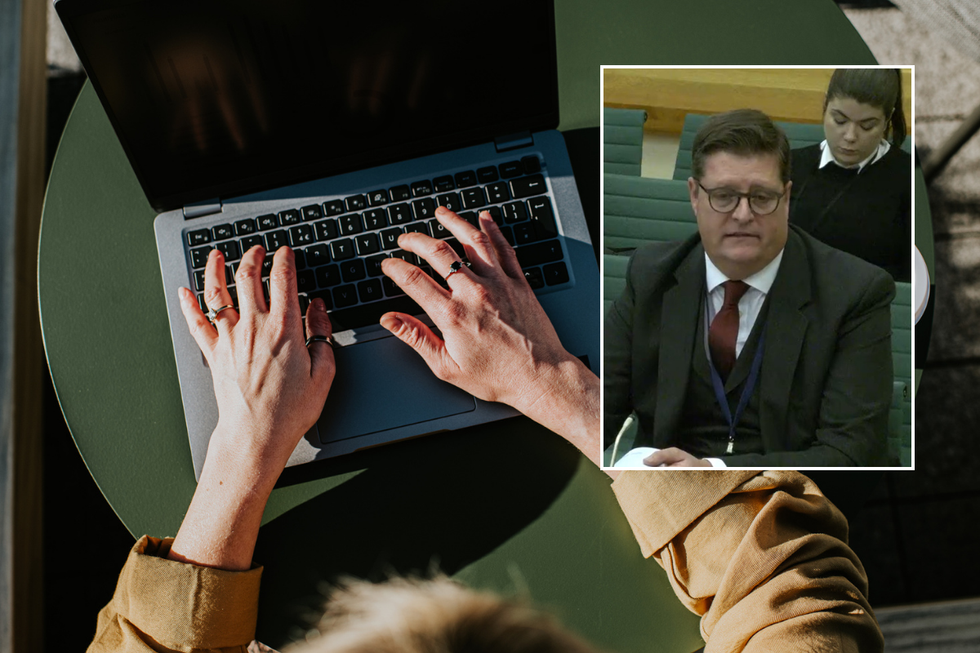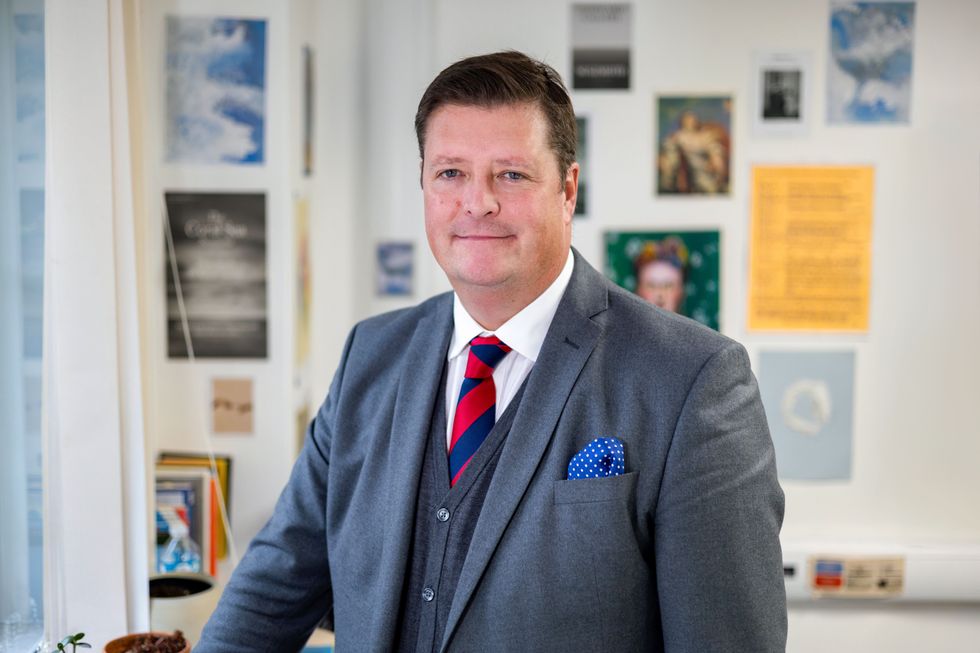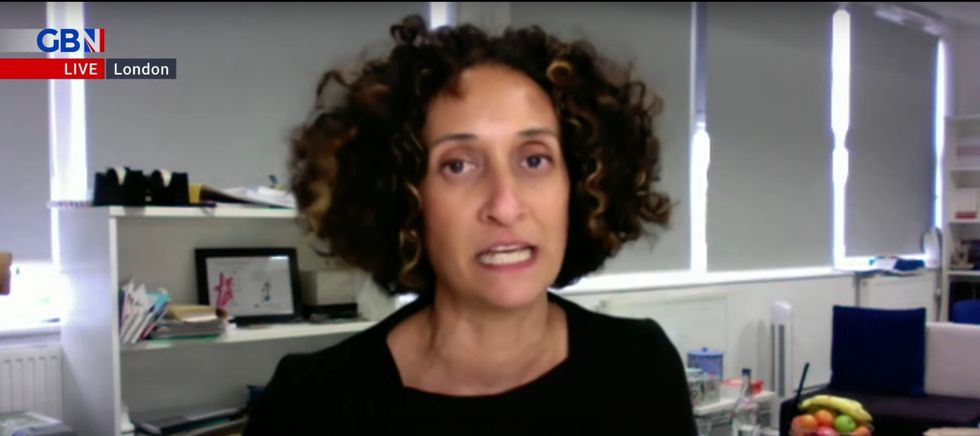WATCH: Miriam Cates speaks to Britain's strictest headteacher
GB News
Sir Martyn Oliver, head of Ofsted, said he thought the working-from-home culture will persist
Don't Miss
Most Read
Trending on GB News
The head of Ofsted has said parents who regularly work from home are contributing to poor attendance rates as it is making their children feel school attendance is optional.
Chief inspector of the schools watchdog Sir Martyn Oliver, told The Times that the post-covid culture of not being in the office every day has broken the habit of "putting your shoes on instead of your slippers, going out to work [and] going to school."
New figures have shown a seventh of primary school children and a quarter of state secondary pupils are now persistently absent, skipping at least one day a fortnight.
Persistent absence at secondary schools rose from 13 per cent in 2018-19 to 24 per cent in 2022-23.

Sir Martyn Oliver has warned about the impact of working from home
Getty/PA
Oliver, a former headteacher, said: "[After the pandemic], suddenly people were used to working from home and, in many cases, I don’t think there was that same desire to have their child in school whilst they were at home. They had been used to it for the best part of a year and a half, on and off, during lockdown. That changed something."
He added that he believes children are copying adult working patterns and that the Covid lockdown had an impact on how children develop their learning skills.
The 52-year old added: "In lockdown we said to children, 'Stay at home to be educated, go online.' Then we said, 'Come in for your education, don’t go online, don’t go on your phone.' You can understand that was quite confusing for children going through their formative years.
"I think developing good social habits of getting up in the morning, putting your shoes on instead of your slippers, going out to work, going to school, expecting to complete a full day’s school, a full day’s work, clearly that’s habit-forming."
LATEST DEVELOPMENTS
- 'It's STILL blunt!' Schools minister grilled on Ofsted reform amid backlash: 'It will drive up standards'
- Ofsted new report cards slammed as 'rehash' of previous 'dangerous' system - 'Bewildering for teachers.. never mind the parents!'
- Former Ofsted inspector promises 'we are not demons' as new system to be implemented
 Sir Martyn Oliver raised concerns that full-time schooling is increasingly being viewed as optionalPA/OFSTED
Sir Martyn Oliver raised concerns that full-time schooling is increasingly being viewed as optionalPA/OFSTED
Katharine Birbalsingh
GB Nww
Last year, Katharine Birbalsingh known as 'Britain's Strictest Headteacher' argued against giving children smartphones, saying it was the "one thing" parents can do to improve their children's prospects in school.
She told GB News: "[Smartphones] are the most dangerous things on the planet...Everyone from a gang member to a paedophile putting your child in danger. Then there's also the issue of the smartphone breaking their brains."
She also argued that smartphones hinder children's reading habits and academic performance. She added: "They'll get to a point where they don't read at all," she cautioned, adding that without smartphones, children "will get the best possible GCSEs, they will know how to organise their time, they won't get addicted."
It comes as Northern Ireland's Education Minister Paul Givan has recently issued new guidance on restricting mobile phone use in schools

Shadow Education Secretary Laura Trott
PAIt comes as Ofsted has brought in a new 'traffic light' rating system, where parents can more easily see in which specific areas a school is excelling and struggling. Instead of four gradings from outstanding to inadequate, there will be five grades from “exemplary” to "causing concern."
Politicians and teaching unions have reacted poorly to the planned reforms. The National Education Union said the proposals were crude, rushed and did not provide more meaningful information for parents.
Meanwhile, Shadow education secretary Laura Trott said the new report cards system would be “slower and weaker”, and result in more children staying in failing schools for longer.
Liberal Democrat education spokeswoman Munira Wilson added: "On its own, a move away from single-word to multiple-word judgements will do little to bring about change. We need to see a culture shift so that Ofsted, teachers, school leaders and parents are partners together in the process of school improvement and assessment, rather than adversaries."








